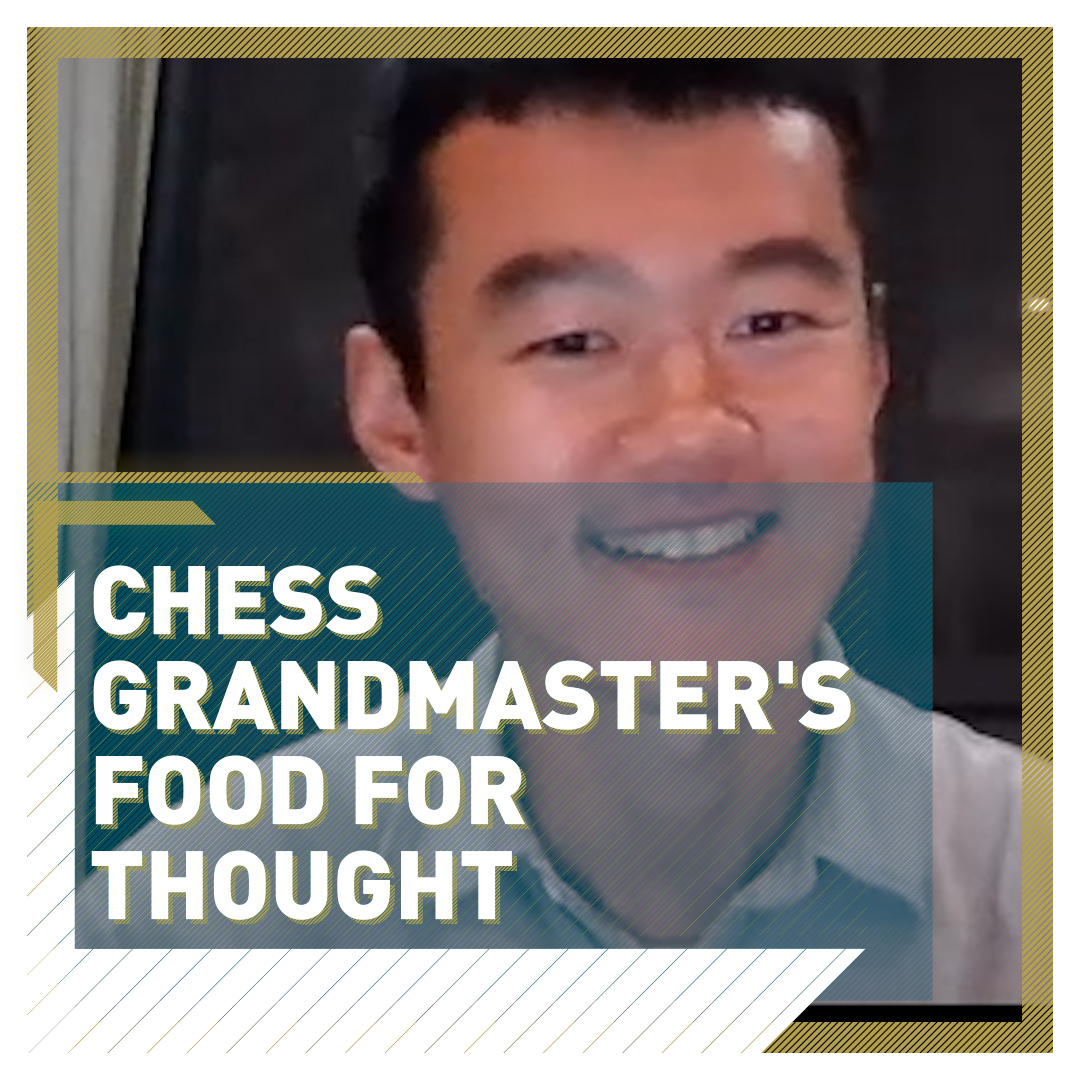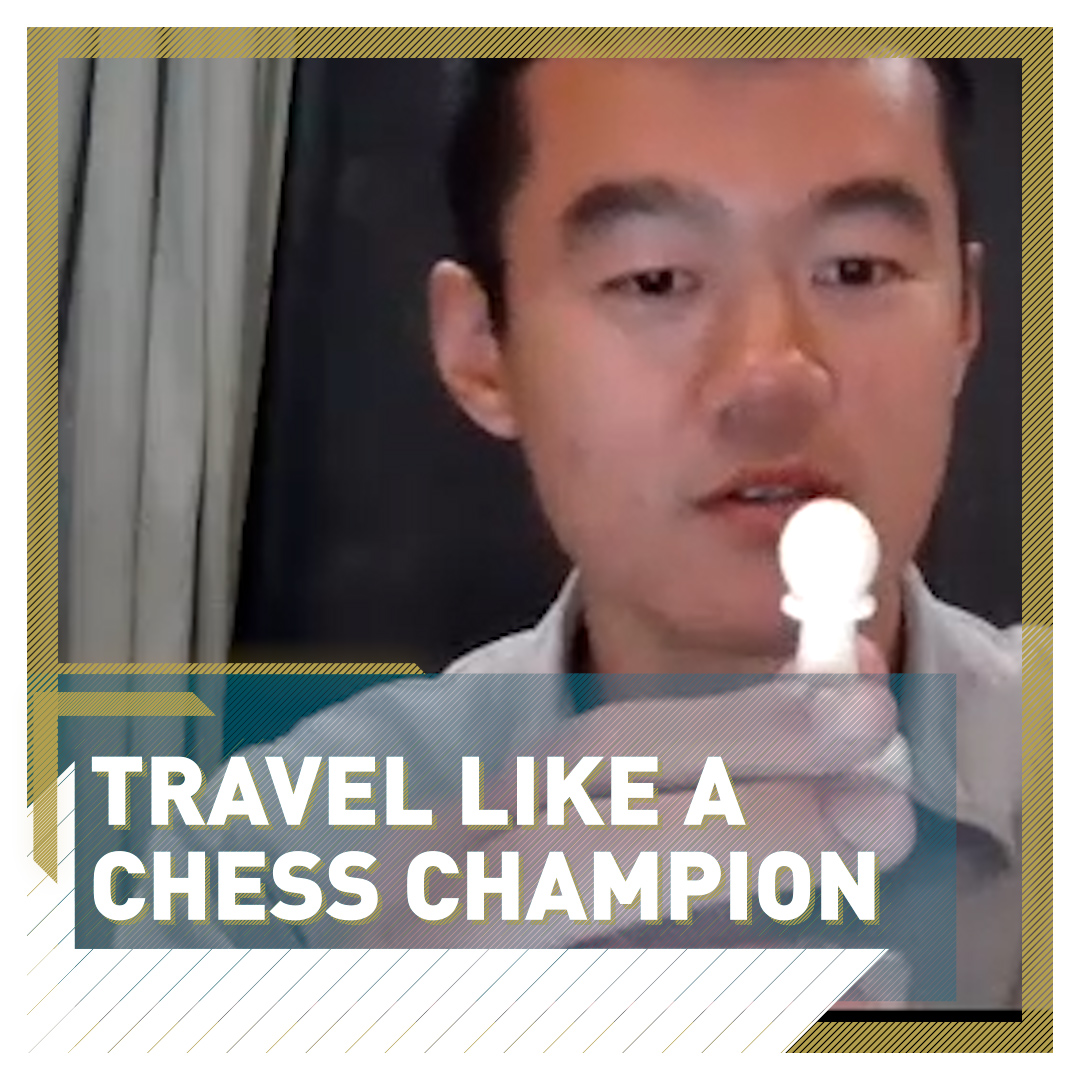01:00

"A chess player, no matter if he is introverted or extroverted, has a very calm and steady side. When he is playing, he is able to concentrate on the board and think about the game and the possible changes."
That's what China's top chess player, and the world's No 3, sees as one of the keys to unlocking the talent needed to reach the highest level of his sport.
Ding Liren has had plenty of time to experience different cultures and places in his career and, from studying his opponents, believes there are also differences in the ways players of different nationalities behave.
"European players may be a little bit more adventurous in their play, compared to us," Ding observed in an interview with CGTN.
"Sometimes, I think we, like I used to, will open very carefully and play our own prepared moves. We will not go to unfamiliar territory that neither side is familiar with…but European players are kind of creative or adventurous, and they sometimes play out of the box, with new innovations," he added.

Ding says he is eager to return to Europe this year, after being grounded by the pandemic.
"I like Europe quite a lot. The last time I went to Western Europe [was] five years ago, I think. I went with my dad to several European countries in a row, Scotland, Czechia and Norway."
"I went to the Scottish castles in the Highlands. The natural environment in Scotland, I think is very beautiful. I like the fields there, the big green fields," Ding told CGTN.
Although it was chess that brought the (then) rising star to England, a country Ding said made him think of a "rainy day, pedestrians walking briskly with briefcases," he said he soon found enjoyment in the big city.
"One comes to such a big city and you are new to it. I looked at where I was staying, and it was near Stamford Bridge in Chelsea! Fulham was also nearby," he laughed. "So I went to look at the stadium… I am a football fan."
Although he didn't get to see a Premier League game on his 2019 visit, the Juventus fan said catching a game next time he's able to come to Europe is on his to-do list. It wasn't a bad trip to the UK capital though. Ding won the Grand Chess Tour finals, beating French player Maxime Vachier-Lagrave, after Ding's rival Magnus Carlsen was knocked out.
"I have very fond memories of that game because I won the championship in the end."
00:46

There are many differences between China and the UK, east and west, and while that extends to chess too, Ding noted the similarities in how the nations promote the sport.
"The current policy in China is to promote and popularize, like chess in schools, so that more children learn to play chess and like chess, and then one day they will become not professional chess players, but also enthusiasts," Ding told CGTN.
After conversations with Malcolm Pein, a leading British chess master and writer, Ding realized the same tactics were used in the UK.
"I've talked to Pein, and the UK is also very big on bringing chess into schools. I remember some of the activities with them," Ding said.
"The [teachers] would put the kids in costumes and play the kids as the pieces, and then the grandmaster would play and direct the kids forward and backward. Some of them had makeup on their faces," he added.
"It reminded me of the [Wizard] chess scene in Harry Potter!"
So while the sport isn't currently quite as popular in China as it is in Europe - "chess has a much longer history in Europe… I see a lot of people in the streets of Europe who play outside with a chessboard," - that's partly to do with similar games which are more widely popular in China.
In China, Xiangqi, often known in Europe as Chinese Chess is more popular. Weiqi, or Go, is another popular game, similar to checkers.
"The number of spectators for chess tournaments in China is not yet comparable to the other two disciplines," Ding said.
Quick-Fire Questions:
What do you always bring with you on an international trip?
A pot to cook porridge - I was too lazy to go out to eat at noon!
A book, I like to read novels. The last books I read were the Last of the Neapolitan quartet.
And podcasts, I like social science content.
What do you miss about China when you travel?
The small yellow fish dish at home in Wenzhou.
Walking in front of my house.
Do you bring your own chess set with you?
Yes. The chess pieces are wooden, they're not too big, I kind of like them.
Do you have a favourite food in Europe?
Yes, I just thought of paninis. And then there's lasagne!
Have you eaten anything out of the ordinary that you wouldn't find in China?
I had shark soup in Iceland… It smells good!
Who is your biggest rival?
Magnus Carlsen… He's the best chess player. I'm probably the challenger, he's won so many titles.
Who is your chess hero?
There was a Spanish grandmaster Paco Vallejo, not particularly famous, but his openings I think are very thoughtful. Then there is Topalov from Bulgaria, I like his style very much.
What's your advice to young players?
For beginners, you have to buy good looking chess pieces.
Go into the game from an appreciation point of view first, and get some fun and pleasure out of it.
This interview is simultaneously published by British Chess Magazine under an agreement with CGTN.

